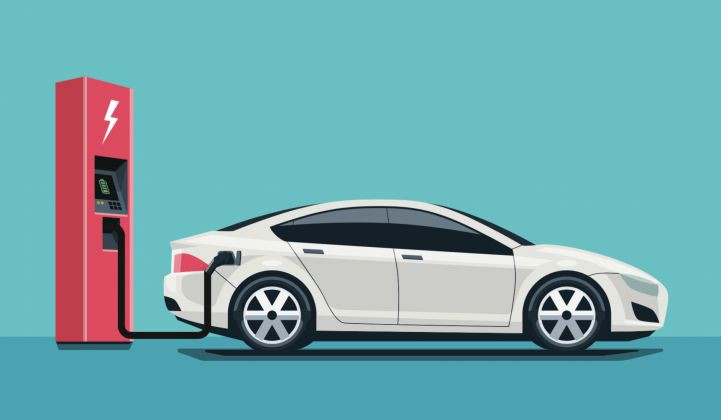What is it really like to own an electric car?
There are several benefits to owning an electric car in 2019; along with environmental benefits, electric vehicles (EVs) get tax grants…

There are several benefits to owning an electric car in 2019; along with environmental benefits, electric vehicles (EVs) get tax grants, and are also exempt from certain congestion charges. However, one of the most obvious benefits of owning an EV are the low running costs.
An electric vehicle will cost potentially far less than a diesel or petrol equivalent given the same use. But how much cheaper are they? Keep reading to find out.
How to calculate running costs for an electric vehicle (EV)
Every electric car comes with a different-sized battery. The capacity of a battery is usually expressed in kilowatt hours (kWh), a measure of the energy storage available. So to calculate how much it costs to charge your car, simply look at the cost of electricity (either your home supply or at a public charging point) then calculate the cost.
For example a 100 kWh Tesla Model S. A typical public rapid charging point in the UK currently charges around 35p per kWh, so the cost is 100 x 35p = £35 if you were to theoretically charge from completely empty to full. Switch to a cheaper home supply, which could cost 12p per kWh on a good-value overnight tariff, and the calculation works out at a more palatable 100 x 12p = £12. That’s a major saving over the cost of a £70-£100 petrol/diesel tankful for a typical executive car.
Where can you charge an EV?
The cheapest and easiest way, if you have off-road parking, is at home. Simply plug your EV in when you get home and by the morning it’s fully charged. You can easily have your own home charging point installed so having one at home could start for as little as £150. In public, charging is free at some car parks and supermarkets, but elsewhere the cost varies. All motorway services now have extra-fast (but more expensive) “Rapid” points, which charge up an average-sized battery to 80 per cent in about 30 minutes.
How much does it cost to charge an electric car?
Just like conventionally-powered vehicles, electric cars come in different shapes and sizes, and will therefore have varying costs per mile. I will use Renault Zoe EV to approximate the cost.
Researchers on Parkers have compared it to the other vehicles on its long-term test fleet, so you can get a better idea of just how much it costs in the real world.
Don’t forget you’ll need to add the initial cost of of a home-charging point to these prices, and that’ll set you back around£850 to £1250, including parts and labour.
What about public charging of EVs?
Home charging is generally cheaper than public charging. When you consider 80% of electric car owners charge at home, according to BP Chargemaster, this is the most common scenario for the majority of EV motorists.
In advance of us getting a more comprehensive look at electric car running costs, its recommended you look at how much you’d use your EV and calculating how much you’d need to charge up at home versus on the open road. The likelihood is that an electric car will save you hundreds, or maybe even thousands, of pounds a year in cheaper running costs.
How much cheaper does an EV cost per month?
To make the advantage clear, multiply those commuting costs by five for a typical working week, and then that by four to get an estimate of the monthly difference, and so forth.Then add in extra miles done at weekends and in the evenings, and you’d be saving even more money. It’s advantage electric car all the way.
What about general running costs?
The EV motor is less complicated than a combustion engine, meaning there are fewer things “under the bonnet” to go wrong and less to pay your garage. And charging is much cheaper than filling up with petrol or diesel — a mile in an electric car is three to four times cheaper than a mile even in an efficient diesel.
How far can I travel on a fully charged battery?
Various factors come into play, but the new Nissan Leaf’s range, for example, is about 150 miles on a fully charged battery. OVO Energy is working on new ways to improve the lifetime performance of lithium batteries, but even now most come with an 8–10 year warranty.
What are they like to drive?
EVs provide a totally new driving experience; It’s like flying a spaceship. Because electric cars have fantastic acceleration they feel amazing (they’re automatics and only have one gear, so you don’t have to go through the slow acceleration of a manual). They’re easy to handle and, without a conventional engine, they are much quieter too.
What does the future hold?
EVs are the clear direction of travel. Soon the world will switch to electric vehicles will million of cars being produced.




